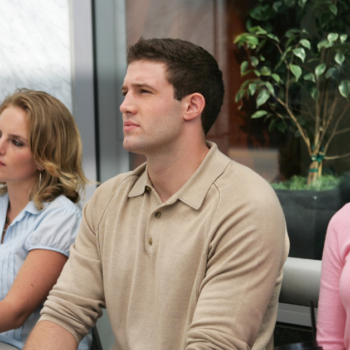Talking to Kids About Mass Tragedies and Other Events
/ Supporting a Griever : Eleanor Haley
For further articles on these topics:
I'm in my late 30's which means I grew up pre-internet, at a time when it wasn't unheard of to have only 3 or 4 television channels, and people still used things like newspapers, phonebooks, and maps. No, I didn't walk 4 miles uphill in the snow to school every day, but, things were different.
Today's child has far more access to information than before. Whereas I had to rely on a set of encyclopedias from the 1970s and the kids at the bus stop for info, my children need only open up their Internet browser. That's not to say you don't have to worry about the kid at the bus stop, you absolutely do, because he still knows things and now he has innumerable sources.
Every generation has its worries, but the news of our children's generation seems particularly stressful. Mass shootings and other acts of violence occur with distressing regularity, yet so randomly it's impossible to anticipate the who, what, where, when, why, and how.
As a caring adult, you might wonder, how do we help our children feel safe when so many of us grapple with our own worries about safety, security, and the future? We are used to being able to assuage our children's fears with ease. "Yes, it's safe to pet the neighbor's friendly dog" and "No, you won't be eaten by a monster in your closet." But what do we say when we relate to, and possible share, a child's fears around frightening events in the news?
Devastating incidents, both locally, nationally, and even internationally, remind us that parenting doesn’t come with a handbook. We know our children need us to guide and support them, but it is hard to know what to say or do.
In this article, we'd like to share some general tips for talking to children about mass tragedies. We will also share articles we've written in the past about talking to children about death and grief. As well as resources from other experts in the field whom we trust.
Tips for Talking to Kids About Mass Tragedies:
1. Don't assume silence means they don't know what is going on. Though many kids will feel comfortable asking questions, some will not. It may be tempting to think this silence means your child has not been exposed to what is going on, but it may just signal that they don't feel comfortable bringing it up. Assess what they've seen, read or heard on TV, the Internet, at school, or from adult conversation. If it seems they are genuinely not aware of the incident, you may not need to discuss it. Though you may still wish to if you believe they could learn of the event at a later date. Assess what they've seen, read or heard on TV, the Internet, at school, or from adult conversation. If it seems they are genuinely not aware of the incident, you may not need to discuss it. Though you may still wish to if you believe they could learn of the event at a later date.
2. Nothing is off-limits. Encourage them to share what they have heard, ask any questions they have, and talk about their concerns and anxieties. Make sure they know no questions are off-limits and that it is important to talk about their thoughts and feelings, no matter what they are.
3. Be aware of your own feelings. Before speaking to a child about a complicated topic, it's crucial to take stock of your own feelings. Events such as these can bring up a range of complex emotions, including anger, guilt, fear, helplessness, sadness, and many others. Though it's okay (and good modeling) to show emotion and share your feelings, you also want to ensure you can communicate calmly and effectively without overwhelming the children.
4. Don’t assume your child feels the same way you do. True, you and the child may share similar fears, but as an adult, you are aware of complexities and worries that a child might never even consider. Your goal is to help the child deal with their own thoughts and emotions around the event, not to inform them of yours.
5. Assure the child you will be honest. Though adults often want to protect children from the truth, we recommend age-appropriate honesty. That said, don't mistake honesty for the need to share every single detail. As stated above, adults are often aware of realities that many children can't comprehend or don't need to know. Always seek to provide basic and straightforward, but honest explanations and answers. Head here for a guide on the influence of age on understanding.
6. Identify specific anxieties. It is common for events like this to bring about fears and concerns for children. Help the child to identify what their feeling and address any anxieties they share. Of course, their anxieties are often based in reality, and you may feel at a loss because you don't have a solution. If this is the case, don't worry, there are other things you can do to help. The first thing you can do is normalize the child's thoughts and emotions. This can help them to know (1) what they are feeling is okay and (2) they are not alone. Something else you can focus on is who in their life can they rely on for help, support, and protection in scary situations. Finally, it may be helpful to discuss coping skills they can use if they ever start to feel a certain way. For example, when I start to feel anxious I can...ask to see the school counselor, take a deep breath, give my dog a hug.
7. Stress that these events are infrequent. Though these events are all too frequent, they are still quite rare. Reinforce that you feel confident they are being kept safe and that these events are in no way typical or expected.
8. Discuss the ways that they are being kept safe. You may wish to discuss the measures that are being taken to keep them safe in different scenarios depending on the situation or their fears. This may include discussing measures keeping them safe at home, school, on airplanes, in public places, etc.
9. Again, talk about coping. You know your child best, so you will know what helps calm them when they are anxious or upset. Spend some time reminding your child of what those things are. You may bring up other times in the past when they have been scared or upset and what they did to feel better. Breathe, draw, read, write, play, sing or do whatever else may help your child self-soothe.
10. Spend time together and stick to the routine. Support and structure can help a child to feel safe and secure. Also, children may be more clingy or needy than usual after experiencing a distressing event and spending time together can reinforce that you are there for them.
11. Going forward, be aware of exposure to TV, radio and the Internet. When tragic events occur, we can find ourselves sucked into the 24-hour news cycle. This intense exposure can set us all on edge, so make a plan to limit TV/internet/social media (for everyone!) and stick to it. Also, remember that kids are often paying attention, even when you don't think they aren't, so be aware of little ears.
12. Don't forget the words of Mr. Rogers:
"When I was a boy and I would see scary things in the news, my mother would say to me, "Look for the helpers. You will always find people who are helping. To this day, especially in times of 'disaster,' I remember my mother's words, and I am always comforted by realizing that there are still so many helpers – so many caring people in this world."- Fred Rogers (aka Mr. Rogers).
Remind children of the good people and good deeds in the world. If appropriate, you may even wish to discuss ways that they can help those impacted by the most recent tragedy or ways they can help people in need in their local community.
Resources From Other Trusted Experts:
Talking With Children About Tragic Events via The Dougy Center
How to Talk With Kids About Terrible Things via NPR
We wrote a book!
After writing online articles for What’s Your Grief
for over a decade, we finally wrote a tangible,
real-life book!
What’s Your Grief? Lists to Help you Through Any Loss is for people experiencing any type of loss. This book discusses some of the most common grief experiences and breaks down psychological concepts to help you understand your thoughts and emotions. It also shares useful coping tools, and helps the reader reflect on their unique relationship with grief and loss.
You can find What’s Your Grief? Lists to Help you Through Any Loss wherever you buy books:




